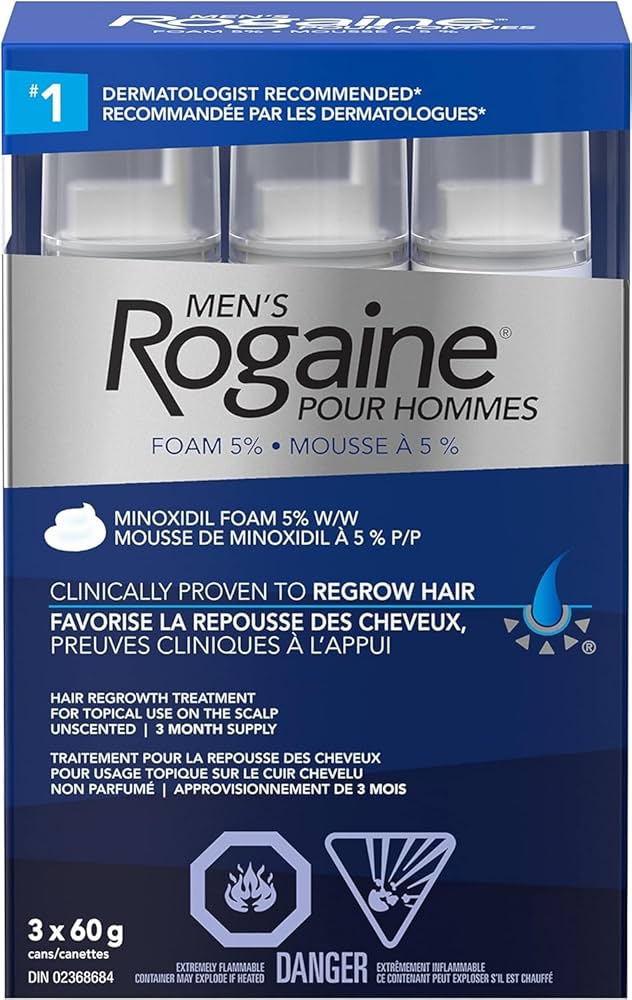
Many years ago, I came across an inventor who had developed a helmet contraption that can treat baldness. I asked him to explain the workings of the helmet, but he refused. He said that he did not want to reveal this. I did not think the helmet contraction worked as I saw only a tiny of small hair follicles growing on his scalp..
He did convince me that the market for his helmet contraption was huge. The fear of going bald is something that weighs on the minds, and scalps, of millions of men around the world.
Recently, a group of scientists from the UK and Pakistan have found a potential cure for male pattern baldness.
Researchers from the University of Sheffield and COMSATS University Pakistan discovered that a sugar which occurs naturally in our bodies can stimulate hair growth in mice.
The sugar, 2-deoxy-D-ribose (2dDR), was just as effective at restoring hair to the balding rodents as commercially available drug minoxidil, also known as Rogaine, the drug owned by Johnson and Johnson.
Professor Sheila MacNeil, of the University of Sheffield, says: ‘This could offer another approach to treating this condition which can affect men’s self-image and confidence.’
The researchers had not originally set out to find a cure for baldness, but were rather investigating whether the sugar 2dDR could help improve wound healing.
When applied to the skin in the form of a gel, the sugar triggers increased growth of blood vessels which they hoped would cause cuts to close faster.
However, they soon noticed that the mice’s hair grew back much faster in the areas around the wound where the gel had been applied.
Intrigued, the research team decided to conduct an experiment to determine whether 2dDR could have an effect on male pattern baldness.
Mice were treated with testosterone to induce ‘testosterone-driven hair loss’ which is similar to male pattern balding in humans.
The researchers found that, after 20 days of treatment, both the sugar gel and minoxidil had promoted 80 to 90 per cent hair regrowth in mice with male pattern baldness.
Combining the two treatments, however, led to no noticeable improvements.
Professor MacNeil says: ‘Our research suggests that the answer to treating hair loss might be as simple as using a naturally occurring deoxy ribose sugar to boost the blood supply to the hair follicles to encourage hair growth.’
Male pattern baldness, or androgenic alopecia, is believed to affect between 40 and 50 per cent of men worldwide.
The condition is caused by a combination of genetic factors and levels of sex hormones which gradually lead to the permanent loss of hair follicles on the head.
Other research has recently suggested that the body’s ‘integrated stress response’ could lead to slowing hair growth and hair loss.
A follicle cell may become stressed, for example, as it ages and becomes less able to properly produce hair, slowing down growth.
And when the mechanism is over-activated, the hair follicle can even die and put a stop to any future growth.
However, as Professor MacNeil points out, ‘at the moment there are only two FDA licensed drugs to treat it.’
Patients can use the topical treatment minoxidil, sold as Rogaine, which can be slow and does not work for everyone suffering from hair loss.
Those who do not see improvements with minoxidil can also take the oral drug Finasteride, sold as Propecia, which works by decreasing the flow of testosterone.
However, this must be taken continuously once started and can be associated with severe side effects such as erectile dysfunction, testicular pain, reduced libido, and depression.
The researchers hope that their breakthrough with 2dDR sugar gels could provide a safer, naturally occurring alternative to these treatments.
he sugar 2dDR occurs naturally in the body as one of the components of the building blocks of our DNA – helping to form the deoxyribose part of deoxyribonucleic acid (DNA).
And, instead of altering the level of sex hormones like Finasteride, the treatment simply works by increasing the amount of blood which can reach the hair follicles.
In tests, the researchers found that this treatment caused the individual hair follicles to sprout long, thick, healthy hairs.
Professor Muhammed Yar, of COMSATS University Pakistan, says: ‘This pro-angiogenic deoxy ribose sugar is naturally occurring, inexpensive and stable.
‘This makes it an attractive candidate to explore further for treatment of hair loss in men.’
I hope this new discovery for treating baldness will benefit millions of men (as well as women), including me. When I met the inventor, I have a full crop of bushy hair,
Reference: Wiliam Hunter. Daily Mail, UK, July 25th, 2024.